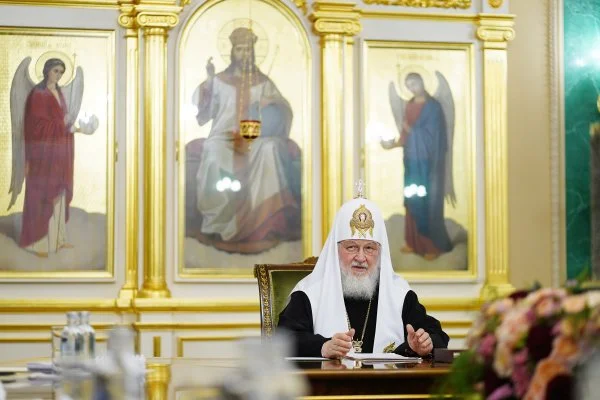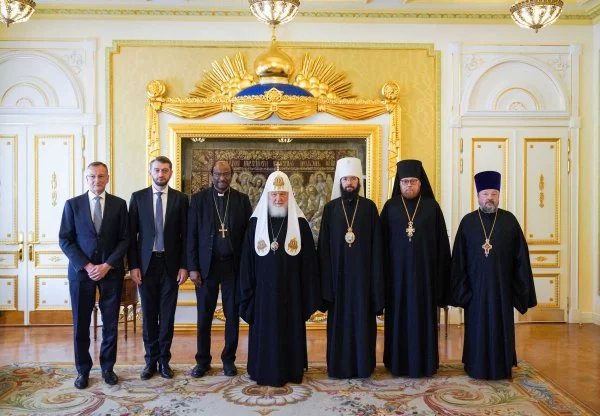- Français
- |
- Booklist
- |
- Week of Prayer
- |
- Links
- Areopagus - a forum for dialogue
- Academic journals
- Acronyms
- Bible tools
- Bibliographies
- Booksellers and publishers
- Churches
- Canadian church headquarters
- Directory of Saskatchewan churches
- Retreat centres
- Saskatchewan church and non-profit agencies
- Ecumenism.net Denominational links
- Anabaptist & Mennonite
- Anglican
- Baptist
- Evangelical
- Independent episcopal
- Lutheran
- Methodist, Wesleyan, and Holiness
- Miscellaneous
- Mormon
- Orthodox (Eastern & Oriental)
- Para-church ministries
- Pentecostal / charismatic
- Presbyterian & Reformed
- Quaker (Society of Friends)
- Roman & Eastern Catholic
- United and uniting
- Documents of Ecumenical Interest
- Ecumenical agencies
- Ecumenical Booklist
- Ecumenical Dialogues
- Glossary
- Human rights
- Inter-religious links
- Justice & peace
- Lectionaries
- Religious news services
- Resource pages
- Search Ecumenism.Net
- |
- Documents
- Ancient & Medieval texts
- Ecumenical Dialogues
- Interreligious
- Anabaptist & Mennonite
- Anglican
- Evangelical
- Lutheran
- Orthodox
- Reformed & Presbyterian
- Roman & Eastern Catholic
- United & Uniting
- Miscellaneous churches
- Canadian Council of Churches (CCC)
- Conference of European Churches (CEC)
- Interchurch Families International Network (IFIN)
- National Council of Churches in Australia (NCCA)
- Lausanne Committee for World Evangelism (LCWE)
- World Council of Churches (WCC)
- Other ecumenical documents
Church traditions
Documents from ecumenical agencies
- |
- Dialogues
- Adventist-Reformed
- African Instituted Churches-Reformed
- Anglican-Lutheran
- Anglican-Orthodox
- Anglican-Reformed
- Anglican-Roman Catholic
- Anglican-United/Uniting
- Baptist-Reformed
- Disciples of Christ-Reformed
- Disciples of Christ-Roman Catholic
- Evangelical-Roman Catholic
- Lutheran-Mennonite
- Lutheran-Mennonite-Roman Catholic
- Lutheran-Reformed
- Lutheran-Roman Catholic
- Mennonite-Reformed
- Mennonite-Roman Catholic
- Methodist-Reformed
- Methodist-Roman Catholic
- Oriental Orthodox-Reformed
- Orthodox-Reformed
- Orthodox-Roman Catholic
- Pentecostal-Reformed
- Prague Consultations
- REC-WARC Consultations
- Roman Catholic-Lutheran-Reformed
- Roman Catholic-Reformed
- Roman Catholic-United Church of Canada
- |
- Quick links
- Canadian Centre for Ecumenism
- Canadian Council of Churches
- Ecumenical Shared Ministries
- Ecumenism in Canada
- Interchurch Families International Network
- International Anglican-Roman Catholic Commission for Unity and Mission
- Kairos: Canadian Ecumenical Justice Initiatives
- North American Academy of Ecumenists
- Prairie Centre for Ecumenism
- Réseau œcuménique justice et paix
- Week of Prayer for Christian Unity
- Women's Interchurch Council of Canada
- World Council of Churches
- |
- Archives
- |
- About us
WCC delegation goes to Moscow on peace mission
— May 18, 202318 mai 2023WCC delegation goes to Moscow just days after a similar trip to Kiev, visits aimed at reconciling the various Orthodox Churches to be a force for peace in the Russia-Ukraine war.
The general secretary of the World Council of Churches (WCC), Rev. Dr. Jerry Pillay, has led a delegation to Moscow to meet with leaders of the Russian Orthodox Church, including Patriarch Kirill. The 24-hour visit, which was taking place on Wednesday and Thursday, followed a similar WCC trip from May 10-13 to the Ukrainian capital Kyiv.
“Consolidation and unity in Ukrainian society, including especially among the majority Christian Orthodox believers, is an obvious necessity in the current circumstances faced by the nation and people of Ukraine” observed Rev. Pillay. “We visited Moscow to discuss engagement also by the Russian Orthodox Church in dialogue on the war and its consequences, including with regard to the deep divisions in the Orthodox family in this context,” Pillay reported, “and I am grateful for HH Patriarch Kirill’s commitment to exploring this possibility.”
In the meeting with Patriarch Kirill, Rev. Pillay identified four important reasons for the WCC delegation’s visit: 1) the need to bring an end to the current war, 2) to work for the unity of the Orthodox family which is so seriously divided in this context, 3) to discuss the role of the churches in peacebuilding both internally among Christians and externally as we address the issues of war and violence, and 4) to propose an initial roundtable dialogue meeting to address these issues, with the participation of all parties concerned.
During the meeting, Patriarch Kirill reaffirmed the unique role of the WCC as a convenor and platform for dialogue among the churches on difficult and divisive issues. He shared his own memories, experiences and appreciation of the work of WCC in past years, especially its role in peacebuilding in the post-Cold War period. He emphasized his concern regarding attacks against Christians in many parts of the world, and expressed thanks for the WCC’s historic and continuing role in the promotion of religious freedom. He addressed the increasing disunity within the Orthodox family, especially in the Ukraine context, and stressed the need for believers to seek peace as the way forward.
While expressing concerns about the feasibility of a roundtable dialogue because of entrenched external influences, Patriarch Kirill expressed pleasure at the proposal and commended the WCC for working towards peace and unity. He expressed a willingness to participate in the roundtable dialogue but indicated the need first to consult internally within the Russian Orthodox Church.
The delegation to Kyiv
Lutheran Bishop Heinrich Bedford-Strohm of Bavaria, chair of the WCC’s Central Committee, headed the delegation on the earlier visit to Kyiv. He and his team met with senior officials of the Ukrainian Orthodox Church, historically attached to the Moscow Patriarchate, as well as with the Orthodox Church of Ukraine. Disputes between these two Churches have been exacerbated since the beginning of the Russian invasion. The Ukrainian Orthodox Church declared its independence from the Moscow Patriarchate in May 2022, but some of its monks are believed to have remained loyal to Russia. The Orthodox Church of Ukraine was granted autocephaly by Constantinople in 2019, which has exacerbated tensions between Moscow and Constantinople. The WCC delegation also visited the Kyiv Monastery of the Caves, a golden-domed monastery and jewel of Orthodox Christianity affiliated with the Ukrainian Orthodox Church.
“Harmony between the religious communities of Ukraine is indispensable for the unity of the nation that this crisis demands,” the WCC noted in a statement following its delegation’s visit. “The WCC looks forward to working with the churches and the government of Ukraine to foster this unity and to reduce divisions and discord among the faithful,” it said.
To be an instrument of dialogue
The first step in this work could be a meeting next autumn between the two churches in Ukraine as well as with the Russian Orthodox Church. During the WCC delegation’s visit both the Ukrainian Orthodox Church and the autocephalous Orthodox Church of Ukraine agreed to the plan, at least in principle. Now the WCC is trying to convince Patriarch Kirill to join as well. Its efforts to do so have been criticized by some, given that the Moscow Patriarchate is seen as a supporter of Vladimir Putin. Dr. Pillay, a South African Presbyterian who took up his post as WCC secretary general last January, has defended the WCC’s attempts to “dialogue” with Kirill and keep him engaged with the ecumenical body.
“This is the very essence of WCC’s purpose and calling” said Pillay, “to be an instrument of dialogue among the churches on the issues that divide us. We are committed to the Christian calling to be peacemakers, and faced with the situation in Ukraine and in the world today, the churches must struggle together to answer that calling.”
Reflecting on the meeting, Rev. Pillay recognized the significant challenges that efforts for dialogue must overcome. “It is clear that perspectives on the conflict, its causes, and the path towards a just peace remain highly polarized. However”, he concluded, “this only underlines the critical importance of efforts to create safe spaces for dialogue, and for the WCC this must start with attempts to bridge the intra-Orthodox divide which mirrors the current geopolitical confrontation.”

 Permanent link: ecumenism.net/?p=13685
Permanent link: ecumenism.net/?p=13685
Categories: News • In this article: dialogue, Heinrich Bedford-Strohm, peace, Russian Orthodox, Ukrainian Orthodox, WCC

 Lien permanente : ecumenism.net/?p=13685
Lien permanente : ecumenism.net/?p=13685
Catégorie : News • Dans cet article : dialogue, Heinrich Bedford-Strohm, peace, Russian Orthodox, Ukrainian Orthodox, WCC





